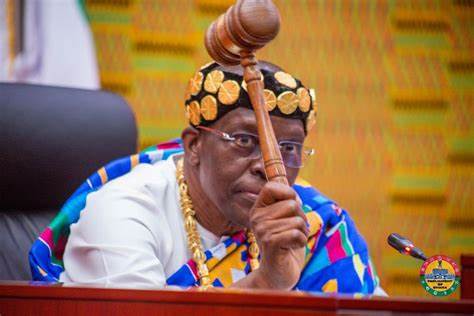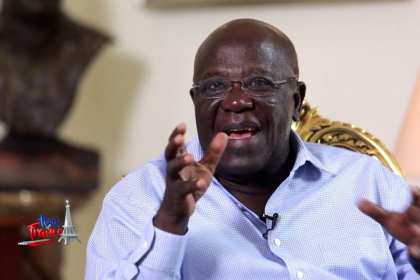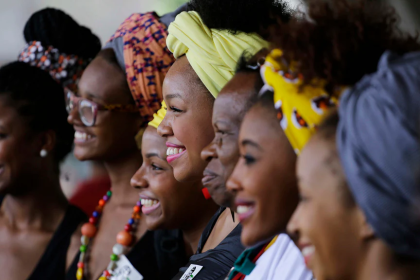Respectfully,
I have been approached by several friends here and beyond to share my thoughts on Speaker Alban Bagbin’s remarks regarding the collation and recollation of parliamentary election results and their implications for the swearing-in of new Members of Parliament (MPs) on 7 January 2025. The remarks, made during a meeting with the NDC ProForum, have sparked widespread debate, with many interpreting them as either a subtle campaign for a second and record-equalling term as Speaker under the fourth Republic or as a demonstration of his characteristic strongmanship.
As reported, Speaker Bagbin’s quotes from the meeting that have drawn significant attention are as follows: “The decision of the Supreme Court just followed the position I took before they even delivered their decision,” he stated. “To become a Member of Parliament, you have to be elected by voters, declared by the Electoral Commission, and sworn in by the Speaker. Until you are sworn in, you remain MP-elect.” He further asserted, “They were unknown to the law and not properly so-called MPs-elect. I’m the gatekeeper. The right thing must be done for us to be able to reset Ghana.”
These remarks highlight Bagbin’s view of the Speaker’s role as pivotal in Ghana’s parliamentary democracy, particularly during transitions between Parliaments. His assertion that he is the “gatekeeper” of parliamentary legitimacy reinforces his reputation for procedural rigor and his determination to ensure that parliamentary processes adhere strictly to the law. At the same time, these statements have fueled speculation about his intentions, with some interpreting them as a calculated move to bolster his case for re-election as Speaker, while others see them as a reflection of his characteristic leadership style, designed to assert authority and project his indispensability at this critical juncture.
The following are my initial observations. To be clear, I will not venture into the merits or otherwise of the so-called collation and recollation matters, as these are currently sub judice, under the consideration of the courts. As an officer of the courts, I am deeply mindful of the need to respect the judiciary’s authority. Therefore, I will confine the following analysis to the procedural and constitutional questions surrounding the Speaker’s role in the transition of Parliament and its broader framework within Ghana’s parliamentary democracy.
The Broad Legal Framework
The Speaker of Parliament occupies a pivotal position in ensuring the smooth functioning of Ghana’s constitutional governance, particularly during transitions between Parliaments. It is indeed the Speaker’s solemn duty to administer the oath of office to MPs-elect, a function that underscores why the election of the Speaker is the very first order of business for any newly constituted Parliament. This pivotal process is governed by the Standing Orders of Parliament, which essentially implement the constitutional mandate enshrined in Article 95 of the 1992 Constitution of Ghana.
Article 95(1) establishes the requirement for a Speaker of Parliament who is elected from among MPs or persons qualified to be elected as MPs. This constitutional directive is mirrored in Order 7 of the Standing Orders, which specifies the eligibility criteria for the Speakership. Moreover, the procedural details for electing the Speaker as outlined in Order 8 flow directly from Article 95(3), which mandates that “no business shall be transacted in Parliament other than an election to the office of Speaker, at any time when the office of Speaker is vacant.” Accordingly, Order 8 ensures that the election of the Speaker is the first priority when Parliament convenes after its dissolution, with the Clerk to Parliament presiding over the proceedings.
The procedural integrity of the election is further safeguarded through the democratic processes outlined in Order 8(6), which implements the principle of majority rule. Where more than one candidate is nominated for the position of Speaker, voting is conducted by secret ballot, and the candidate with the majority of votes is declared elected. This process aligns seamlessly with the constitutional ethos of democracy, ensuring that the Speaker represents the collective will of Members of Parliament.
The requirement under Article 95(4) that an elected Speaker must take and subscribe to the Oath of Allegiance and the Speaker’s Oath before assuming office is implemented in Order 9 of the Standing Orders. This solemn act, administered by the Chief Justice in the presence of Parliament, not only legitimises the Speaker’s role but also reinforces their commitment to upholding the Constitution and discharging their duties impartially.
These intersections between the Standing Orders and the Constitution highlight the deliberate and harmonious design of Ghana’s parliamentary framework. The Standing Orders are not merely procedural rules; they are Parliamentary instruments that implement and uphold the Constitution, ensuring that the processes surrounding the Speakership are both legally sound and democratically legitimate.
Identity of the next Speaker
At this juncture, it is important to state that the identity of the Speaker for the 9th Parliament remains undecided. Nonetheless, Rt. Hon. Alban Bagbin, the current Speaker, stands out as an accomplished statesman with vast legislative experience and a nuanced understanding of governance, being a lawyer, former MP and Former Minister. His tenure has been characterised by assertive leadership, which, particularly in recent months, has bolstered the influence of the NDC in Parliament while placing the New Patriotic Party (NPP) government under sustained scrutiny. This combination of assertiveness and political acumen has unquestionably earned him the right to be considered for re-election.
That said, it appears to me—and key insiders have confirmed this—that the recent meeting with NDC Professionals Forum (ProForum) at which Speaker Bagbin reportedly made his remarks about the collation and recollation of some parliamentary results was carefully orchestrated to serve multiple purposes. First, it provided a platform for PNDC loyalists and influential NDC figures such as Sam Pee Yalley – who leads the ProForum – to send a clear and forceful message to President-Elect John Mahama and the party’s leadership: any attempt to sideline Bagbin in the race for the Speakership of the next Parliament would face staunch resistance. It is worth noting that, long before the elections, there were talks of discussions in certain circles within the NDC about plans by some factions to unseat Bagbin should the party secure victory at the polls. They claim to have a long list of charges against him. I will refrain from delving further into those conversations at this point.
Second, the meeting offered Speaker Bagbin a subtle yet strategic platform to advance his case for retaining the Speakership for another four years. It is inconceivable that Bagbin, a seasoned political operator, is unaware of the efforts by certain elements within the party to undermine his position. The said discussions to unseat Speaker Bagbin likely explain why a number of names with formidable pedigree and merit—ranging from top NDC stalwarts and a former Justice of the Supreme Court to respected academics—have recently been linked to the Speakership. Here, I mention or repeat no such names. Thus, by leveraging the meeting, Bagbin highlighted his record of leadership, his deep institutional knowledge, and his proven ability to assert the NDC’s influence in Parliament. In doing so, Bagbin appears to be strategically positioning himself as the most qualified candidate to continue in the role, even as the party’s internal dynamics evolve. His approach demonstrates his determination to consolidate his position, while reminding his detractors of his unparalleled experience and contributions to the party and Parliament alike.
As we reflect on Speaker Bagbin’s stature and legacy, it is important to acknowledge that his only true equal in Ghana’s parliamentary history is undoubtedly former Speaker Edward Doe Adjaho, who led the 6th Parliament with distinction. I invoke Adjaho’s name not to suggest that he harbours any intention of returning to his former role, but rather to underscore the fact that these two individuals represent the most experienced and capable hands currently available to the victorious NDC. Their unparalleled expertise and deep understanding of parliamentary practice remain invaluable assets to the party and the nation.
Both men entered Parliament in 1993 as part of the pioneering cohort of the Fourth Republic, and their parliamentary careers have been marked by exceptional leadership and an unparalleled understanding of parliamentary practice and procedure. Adjaho resigned as MP in January 2013 after 20 years of service to his people and Ghana. Bagbin, on the other hand, retired in 2021 after he chose not to seek reelection as the NDC’s candidate In all, he spent 28 years serving as MP. Their influence on Ghana’s Legislature is profound, with their individual and collective contributions shaping its evolution over the decades.
Doe Adjaho, a formidable authority on parliamentary rules and governance, served as Deputy Minority Leader during the Kufuor years, with Bagbin as his Minority Leader. Together, they were a marvel to watch and listen to, their synergy on the floor of Parliament setting the bar for robust yet principled debates. As with all teams, there were moments of formidable tensions and disagreements between the two behind the scenes. I will provide no further details here. Under President Mills’ administration, Adjaho was elevated to the position of First Deputy Speaker under Joyce Bamford Addo’s Speakership (2009-2013). Remarkably, the nature of this role did not – under our laws – require him to vacate his seat as MP for the good people of Avenor-Ave, allowing him to serve his constituents while simultaneously contributing to the governance of Parliament at its highest levels.
Four years later, during John Mahama’s presidency, Doe Adjaho ascended to the Speakership (2013-2017), an elevation that required him to under Article 97(1)(b) resign his seat as MP for Avenor-Ave—a sacrifice emblematic of his commitment to the institution of Parliament. Under his leadership, Parliament witnessed a largely steady and principled stewardship, rooted in his deep knowledge of parliamentary procedures and governance.
For his part, Bagbin’s rise within the Legislature continued unabated. In 2017, following the NDC’s loss of power, he was elected Second Deputy Speaker, serving under Speaker Mike Oquaye during the first term of the Akufo-Addo administration (2017-2021). This appointment reflected the enduring respect he commanded across both sides of the House. However, it was in 2021 that Bagbin reached the zenith of his parliamentary career, becoming Speaker after a tumultuous and historic first sitting of the 8th Parliament. That chaotic session—marked by the snatching of ballot papers, fisticuffs, slaps, and an unprecedented intrusion by the military into the chamber—was a dark moment for Ghana’s democracy. The act of military overreach, which remains unpunished (at least publicly), was a troubling episode that underscored the fragility of our democratic institutions.
Bagbin’s elevation to the Speakership, despite the controversies of that fateful night, represents a culmination of decades of service to Parliament and the country. Like Doe Adjaho before him, Bagbin has brought to the Speakership a wealth of experience, a mastery of legislative procedure, and a commanding presence that has shaped parliamentary deliberations. Together, these two statesmen—Adjaho and Bagbin—stand as towering figures in Ghana’s parliamentary history, their legacies intertwined and their contributions to the institution unmatched.
However, Speaker Bagbin’s tenure has not been without its share of controversies. Some critics argue that certain actions under his leadership have bordered on overreach, potentially straining the rule of law and encroaching on the boundaries of other arms of government. These criticisms—some of which I share and have openly commented on or challenged—must be acknowledged as an integral part of the ongoing discourse surrounding his legacy.
That said, within the NDC, Bagbin’s almost unmatched expertise in legislative affairs and governance firmly positions him as a leading contender for the Speakership, despite the reservations held by some within and outside his party. His deep institutional knowledge and tactical leadership make him a formidable figure in Parliament.
Given this context, I would be genuinely surprised if Speaker Bagbin is not retained for a second term. Put differently, and based on what I have been hearing from highly reliable sources, the former MP for Nadowli-Kaleo is most likely—if not almost certain—to be re-elected as Speaker of the 9th Parliament. Speaker DF Anan (of blessed memory) is the only other speaker to have served two terms under the fourth Republic. This expectation is bolstered by the pivotal, albeit sometimes contentious, role he played in the final months of the year, during which he assertively advanced the NDC’s partisan agenda in the House. This strategic approach, while polarising, arguably contributed significantly to the party’s decisive victory at the polls.
Whether one regards his methods as commendable or problematic, there is no denying that his leadership was instrumental in shaping the political and parliamentary dynamics of the period. His ability to navigate the complexities of an almost evenly divided Parliament and leverage procedural tools to bolster his party’s influence, despite his promise in his inaugural speech not to do so, has undoubtedly strengthened his case for retention as Speaker.
To Swear or Not to Swear in Some MPs-elect
To provide clarity on the procedure, and in line with the legal and procedural authorities referenced earlier in this opinion, it is essential to outline the process of inaugurating a new Parliament. In the absence of a Speaker at the commencement of a new Parliament, the Clerk to Parliament presides over the election of a Speaker. Following this, the elected Speaker is sworn into office by the Chief Justice, who then effectively “transfers”—for want of a better term—the responsibility to the Speaker to administer the oath of office to the MPs-elect. It must be emphasised that the Speaker’s role in this process is predominantly ceremonial and administrative, as required by the Second Schedule of the 1992 Constitution and Order 13 of the Standing Orders.
The authority to determine who qualifies as an MP-elect rests solely with the Electoral Commission (EC) under Regulation 43 of CI 127, not with the Speaker. Upon receipt of a writ from the EC, through the Clerk to Parliament under Regulation 43(2)(b) of CI 127, listing individuals duly elected, the Speaker is constitutionally obligated to administer the oath of office to those individuals once they are present in the House—unless there is a lawful court order to the contrary.
It is crucial to underscore the principle of the presumption of regularity, which applies to all official acts, including declarations by the EC. These declarations are presumed valid until successfully challenged in court. If any party believes an electoral declaration to be erroneous, the appropriate recourse lies within the judiciary—not in the unilateral discretion of the Speaker. Without a lawful court order suspending or overturning an EC declaration, the Speaker has no authority to withhold the oath of office from any MP-elect. Any such attempt would constitute a significant overreach of the Speaker’s powers, fundamentally undermining the constitutional balance of authority and Ghana’s democratic principles.
Conclusion
While the Speakership is indeed an office of immense power and influence within Ghana’s constitutional architecture, that power is circumscribed by the rule of law. This has been clarified either expressly or by necessary implication in recent judicial authorities such as Justice Abdulai vs Attorney General and Alex Afenyo-Markin vs The Speaker and Attorney General. These cases affirm the Speaker’s (and Parliament’s) obligation to act within constitutional and procedural limits.
The Speaker must always remain a custodian of parliamentary democracy, respecting the institutions and principles that preserve the integrity of Ghana’s governance framework. Like all offices of public trust, the Speakership must be exercised with impartiality, fidelity to the Constitution, and an unwavering commitment to the rule of law. This fidelity is not just a legal obligation but a cornerstone of the legitimacy and stability of Ghana’s democratic processes.
rD.s
HardLaw
Pix Credit: Parliament of Ghana






